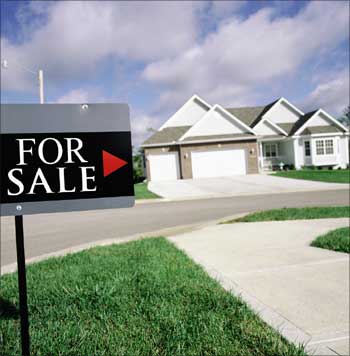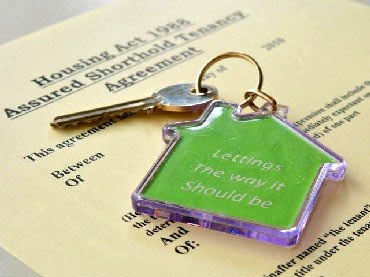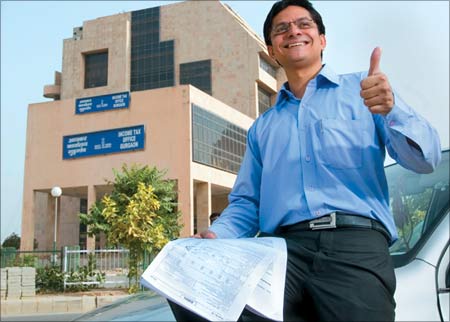 | « Back to article | Print this article |
Buying a home? How not to get cheated
Normally builders/real estate agents don't explain the real estate terminologies to home buyers. They assume you know these or are, in fact, happy if you don't know them because then they can easily show you the moon where none exists.
However as real estate investors/home buyers you should be aware of these must-know terms so as not to get deceived.
1. Carpet area
It is also called as the 'net usable area'. It means the actual area you use. Simply put, carpet area can be imagined as the area inside the four walls of your home on which 'you can put a carpet'.
2. Built up area
Carpet area + thickness of the inner and outer walls is equal to the built up area.
Built up area is usually around 10 per cent to 15 per cent more than the carpet area.
Builders charge you for built up area as well thereby inflating the cost of your unit.
3. Super built up / saleable area
Built up area + common spaces like lifts and stairs etc. Normally it is 25 per cent more than the built up area.
Nowadays, builders/developers charge home buyers on the basis of super built up area whereby law in many states says that builders should charge only for th carpet area which should be recorded in the registered copy of the agreement.

Investmentbazar is a knowledge provider of various investment options available and helps you in making a better and smarter investment decision. Our punch line 'We help you invest better' says it all.
Buying a home? How not to get cheated
4. Approved plans
Plans of the building that is approved by the respective local municipal corporation. This is a drawing of the layout of the project and the layout of the flats.
This document is important because this document can establish any illegal constructions that may have taken place.
5. Completion certificate / Occupation certificate
This is one of the most important documents. Given by the local municipal corporation to the developer. It is issued only after the developer completes all the required formalities. Some of these formalities include getting water connection and electricity connection for the project and the construction being completed as per the permissions given in the commencement certificate and the approved plans.
6. Mortgage
An agreement by which the borrower gives the lender the right to take possession of the property given as security if a loan is not repaid.
Usually all the documents of the property have to be deposited with the lender.
Buying a home? How not to get cheated
7. Possession letter
This is a letter handed over by the developer to the customer stating that the property is complete and ready for occupation.
This letter also indicates the final dues payable by the customer before the key is handed over to the customer.
8. Registration of an agreement
Agreement between the buyer and seller should be registered with the sub-registrar of assurances under the provisions of the Indian Registration Act.
Stamp duty should be paid prior to the registration. It is always advisable to register the documents at the time of purchase of immovable property.
9. Registration charges
The charges which a buyer pays for registering the immovable property.
Buying a home? How not to get cheated
10. Sale deed
The sale deed transfers the ownership of the property/properties in exchange for a price paid or considered. This document is required to be registered compulsorily.
11. Stamp duty
The stamp duty is usually a percentage of the transaction value levied by the state government on every registered sale.
The agreement to sell clearly states the stamp duty, which is usually paid by the buyer, and s/he gets her/his name registered in the land revenue records. It ranges from 5 per cent of the transaction value to 14 per cent in some states.



